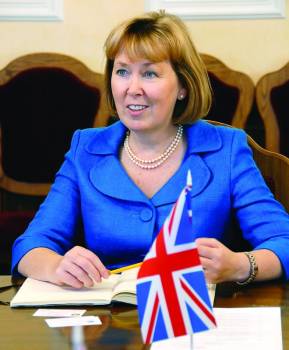The Thousand Year Journey: Death Penalty Abolition in the UK
What links William the Conqueror, Charles Dickens, the United Nations and the man on the London street?
The French have long claimed to be a civilising influence on the unruly British and in fact it was a Frenchman who made the first strike against the death penalty in Britain. Soon after conquering the British lands, William the Conqueror abolished this punishment. So profound and far-reaching was King William's influence that you see it every day and everywhere in today's Britain; in our legal system, aspects of our adminstrative system, in the incredible architectural inheritance he left behind, and even on our landscape. Sadly his inspirational lead was not followed by his son, William Rufus, who reinstated it.
For many hundreds of years there was little progress and then, from the late 1700s a series of Parliamentarians took up the challenge. Sir William Meredith MP, Sir Samuel Romilly MP, and Sir James Mackintosh MP all played their part in raising the profile of this issue, ensuring a debate and securing a progressive reduction in the number of crimes for which the death penalty could be applied.
From the beginning of the 19th Century campaigning to abolish or at least to "civilise" the death penalty spread beyond Parliament to involve private individuals such as the literary giant, Charles Dickens, and pressure groups such as the Quaker religious movement.
The next push came after World War II when the international community passed the United Nations Declaration on Human Rights which recognised "the inherent dignity and inalienable rights of all members of the human family". A series of attempts was made by the House of Commons (the lower house of Parliament) to suspend or abolish the death penalty, but these were defeated by the House of Lords (the upper house or Senate).
From the 1950s growing pubic disquiet built up pressure for action. The disquiet was prompted by a range of issues; for some it was the moral question of upholding the dignity of man. For others it was the coming to light of miscarriages of justice resulting in unjustified execution. As the popular press reported in detail on the trials of those facing execution, the process came under closer public scrutiny, raising the level of the debate surrounding the death penalty and moving it from the hallowed halls of the House of Commons onto the street. The questions raised included whether society had the right to take life at all?; whether execution could ever be humane either for the condemned man or for the executioner himself?; whether it was necessary in a society with a low murder rate?; whether it served as a deterrent?
Finally, in 1969 "a great cheer went up around the House of Commons" reported a newspaper as the British Parliament abolished the death penalty following a seven hour debate.
In this long journey, the focus shifted from efforts to make execution more civilised, to the questioning of the morality of the practice and of the practical issues such as whether any judicial system can avoid mistakes – mistakes which are ultimately irreversible.
Some might question why one of the world's oldest democracies has never held a referendum on this issue? Referendums are very rare in the UK; when the people elect MPs there is an understanding that they put their faith in their MP's judgement and good faith to do his or her best to represent the best interests of their constituents while at the same time bearing in mind the best interests of the country as a whole.
From a great King, to Parliamentarians, from the earliest NGOs and onto the public street ….. a thousand year journey to ban the death penalty in the UK.
Rosemary Thomas, British Ambassador in Belarus


















